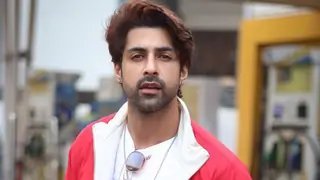Kaana,
Your knowledge amazes me.
Words are not sufficient to praise this piece of writing.
Thank you for reminding us of Sri Sankaracharya.
One doubt i have, and that is, he wrote Bhaasyas(commentaries) on BrahmaSutras. But, as far as i have read, a BrahmaSutra was written by Bhadrayana in 2nd Century BC, and we also credit Rishi Ved Vyas for writing BrahmaSutras. I don't know if both these are same or different, or Bhadrayana re-wrote BrahmaSutras after Rishi Ved Vyas, and in-turn Bhaasyas were written by Sri Sankaracharya of Bhadrayana's BrahmaSutra.
Having read all the details about him in your post, i would add one of his greatest contributions and that is the philosophy of Advaita (Monoism), which he propounded. This is one field which attracts me. Ofcourse, this is seen as philosophy but nevertheless, it is interesting. The very idea of Advaita looked novel to me - Atman(soul) and Brahman(absolute) are one and same as per him.
Though, different theories came up by later schools of thoughts like Vishishtha-dvaita, Shuddha-dvaita, -Dvaita. But, his work was instrumental in countering the Mimamsa, doctrine of Brahamanas, who aimed to maintain their prominence via strict rituals and thereby preserve the concept of social hierarchy. Sri Sankaracharya, simplified this process of worship, giving way to Sanatan Dharma , or the Advaita philosophpy. He maintained only jnana(knowledge) as a means to attain salvation. His emphasis on Advaita, that is, "one ness", can be seen as a grand vision of his. One can call him a reformer too. !
Another thing, which i think is that, the establishment of Mathas by Sri Sankaracharya, were like parallel institutions - Samgha of Buddhists/Jainis.?.
He is credited to have travelled this land 4 times convincing people of the clarity of Vedanta. Calling him an intellectual is an understatement, he was an institution in himself.























